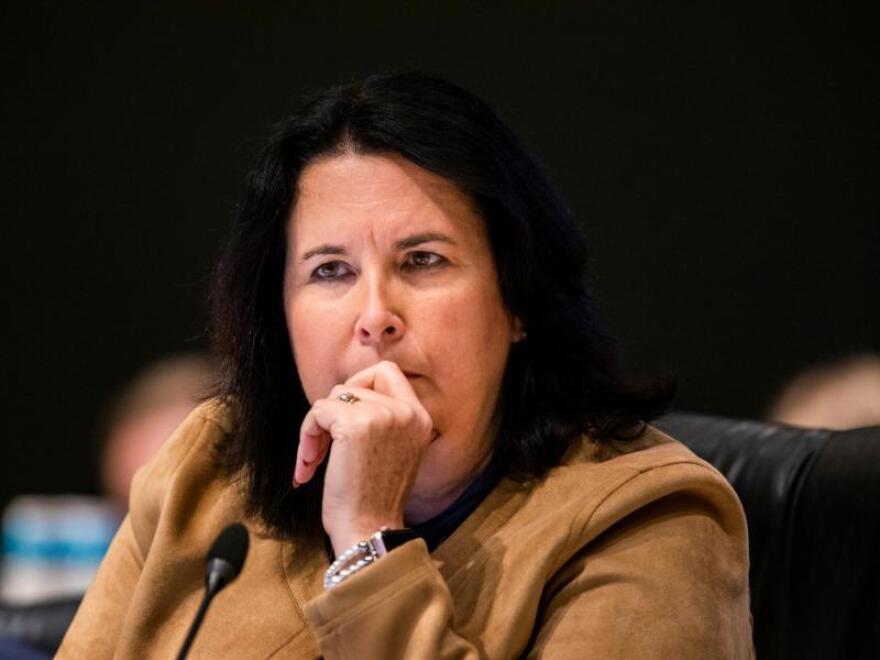In a major victory for abortion opponents, the Florida Senate on Thursday passed a bill that would require parental consent before minors could have abortions.
The 23-17 vote tees up the measure for the House, which is almost certain to pass it. The bill would then go to Gov. Ron DeSantis, who used part of his State of the State address last month to urge lawmakers to send it to his desk.
The Senate shied away from the politically divisive issue in the past, but President Bill Galvano, R-Bradenton, signaled before this year’s legislative session that he supported a parental-consent requirement. The bill, sponsored by Sen. Kelli Stargel, R-Lakeland, moved quickly through committees, powered by Republican majorities.
READ MORE: Coverage of the parental consent bill on WUSF
It passed Thursday along straight party lines.
At each step in the legislative process, the measure sparked debate about whether lawmakers should place additional restrictions on abortions and the role of parents in helping teens decide whether to end pregnancies.
Republican supporters pointed to what they described as life-changing decisions about having abortions and said parents need to be involved.
“There are myriad reasons why this is a good policy initiative here in the state of Florida, and I think it’s genuinely to empower families to make decisions together on such an important subject,” Galvano told reporters after the vote.
Democrats, however, said the bill would give parents veto power over decisions by teens about whether to have abortions.
“I don’t believe that the state of Florida should be forcing children to have children,” Sen. Lauren Book, D-Plantation, said.
Sen. Bill Montford, D-Tallahassee, called the issue “gut-wrenching.” He said he comes from a conservative background but that as a longtime educator had to deal with teens who were pregnant and did not want their parents to find out.
“There’s some parents that are not parents,” said Montford, a former school principal and superintendent. “There are just some parents that simply cannot or will not make good decisions for their own children.”
But Sen. Gayle Harrell, R-Stuart, said her late husband, an obstetrician and gynecologist, delivered babies of teens as young as 13. She questioned how 13-year-olds can make decisions about having abortions, saying they “can’t even decide what they are going to wear tomorrow.”
“We need parents to be part of that decision, to be there for their children,” Harrell said. “So when we have children having children, we need to have the parents involved.”
Florida voters in 2004 passed a constitutional amendment that led to a requirement for parents to be notified before minors have abortions, but a consent requirement would be more restrictive. The current law has a process in which minors can go to court to avoid notifying their parents about having abortions --- a so-called “judicial bypass” that also is part of the consent proposal.
The Florida Supreme Court in 1989 struck down a parental-consent law, finding that it violated a right to privacy in the state Constitution. Democrats and Republicans disagreed Thursday about whether the new measure would be found constitutional as it faces what are widely viewed as inevitable legal challenges.
“If I believed that we were putting something forward that would not withstand a court challenge, we would go back and rethink it,” said Galvano, an attorney. “I am confident this legislation will move forward and be successfully upheld.”
But Sen. Lori Berman, a Lantana Democrat who is an attorney, said voters in 1980 approved placing a privacy provision in the Florida Constitution and that the privacy rights apply to minors. She and other Democrats also said the current notification requirement means parents and children are having conversations about abortions.
“This bill is not about parental knowledge, conversation or guidance,” she said. “Instead, it is an unconstitutional bill, created to force minors to have children against their will.”
But a wildcard in the debate is that the Supreme Court has a new conservative majority.
That majority developed in January 2019 with the retirements of justices Barbara Pariente, R. Fred Lewis and Peggy Quince, who ruled in favor of abortion rights during their two decades on the court. The Supreme Court now has a conservative majority that likely will be bolstered in the coming weeks when DeSantis fills two open seats.
The House voted 69-44 last year to pass a parental-consent bill, which was not taken up by the Senate. House leaders fast-tracked this year’s version, sending it to only one committee.
When asked Wednesday about how quickly the House would take up the measure after the Senate vote, House Speaker Jose Oliva, R-Miami Lakes, responded, “As soon as they send it over.”
“We’re happy that we’re passing it. We think it’s long overdue,” Oliva said.
News Service Assignment Manager Tom Urban contributed to this report.



